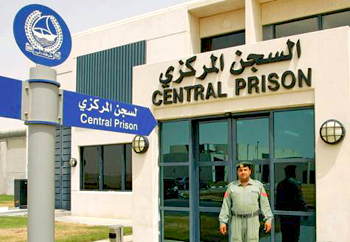 Dubai, Nov 20: The Dubai Criminal Court of First Instance sentenced a woman babysitter to life in jail for killing her employer’s 11-month-old child with a scarf.
Dubai, Nov 20: The Dubai Criminal Court of First Instance sentenced a woman babysitter to life in jail for killing her employer’s 11-month-old child with a scarf.
According to the records, on January 18, while the employer VK, 36, British housewife of Indian origin, was outside her house, she got a phone call from her sister telling her that her daughter, who was in the custody of the babysitter, is in a bad condition.
“I reached home in about 10 minutes and the babysitter was holding the little girl who was not moving or making any sound. I called my daughter but she did not respond. I took the little girl to Zulekha Hospital where I was told that she had passed away two hours earlier,” said VK.
The babysitter was holding the baby while the employer was driving to the hospital accompanied by her son.
“The doctor said the child could have suffocated while having milk or something similar. However, I learnt later from the police that the babysitter had suffocated her,” VK told investigators.
A complaint was lodged with Dubai Police and policemen were rushed to the hospital in Nahda at around 9pm.
The mother of the little girl told police that the babysitter had called her at around 6pm, telling her that the child is having difficulty in breathing.
Doctors said that the little girl had passed away at around 11am the same day.
Police had suspicions about the death of the little girl.
Forensic tests proved that the victim had been suffocated. Confronting the babysitter, she admitted to suffocating the child with a scarf and her hand.
“My employer had left the house at around 3pm and I was alone with the little girl. I brought a scarf and wrapped it around the baby’s neck and blocked her mouth and nose with my hand until she died. Then I went to the hall and played with my employer’s four-year-old son. After that, I returned to the bedroom and I was sure that the baby was dead. I called my employer and told her that the baby is suffering from breathing difficulties and that her condition was abnormal,” admitted the babysitter.
She said she did that to be able to travel home as she could not go home because the employer had nowhere to keep the child.
Forensic reported that the victim was suffocated with a piece of cloth that had been wrapped and pulled strongly around the neck. Bruises on the inner side of the lips and the chin and nail scratches on the eyelid were also reported.
The devastated parents of the little girl told police that the babysitter was very good and that the children loved her.
When the police asked them if the babysitter had sought to go home, the mother answered yes and said that a month earlier RT had asked her permission to travel home as her mother had died.
“We had asked her to wait until her residency formalities are finished,” they said.
The babysitter denied premeditated murder when she appeared before the court.
She told the jury presided by Judge Maher Salama Al Mahdi that there had been a scarf on the child’s shoulders when she put her in bed.” I did not kill her. How I could do such a thing when I am a mother?” she asked.
The parents said that they had treated the accused very well and that they considered her a member of the family. They tried to ask her why she had killed their daughter outside the courtroom but police prevented them.





Comments
Add new comment